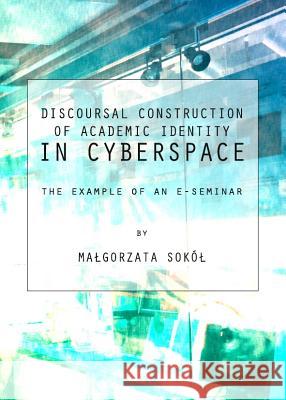Discoursal Construction of Academic Identity in Cyberspace: The Example of an E-Seminar » książka
Discoursal Construction of Academic Identity in Cyberspace: The Example of an E-Seminar
ISBN-13: 9781443834681 / Angielski / Twarda / 2012 / 260 str.
The aim of this volume is to look into how academic identity is discoursally constructed in CMC (computer-mediated communication), using the example of an e-seminar. An e-seminar is an asynchronous type of CMC, where private, public and institutional domains merge, and therefore it provides an interesting context for exploring academic communication phenomena in cyberspace. The linguistic cues of academic identity can be identified on three levels of discourse organisation: the features of lexico-grammar, textual macrostructures and genres. In general, the analysis shows how these three levels of discourse organisation contribute towards how academics negotiate their identities relative to the aims and activities of their discourse communities and relative to their individual goals. The discoursal construction of academic identity in electronic discourse depends also on such factors as the medium's defining properties and the lack of direct physical contact between interactants. An important finding is the confirmation of the individuating character of the medium: i.e. the authors' self-presentation in an e-seminar is characterised by their distinctive voice and increased self-disclosure. Communication in this context enhances individuality, which bears important consequences for how academics negotiate their identity in electronic discourse, exploiting the possibilities offered by the new medium. The results of the analysis reveal how important it is for scholars to maintain a legitimate identity in an e-seminar. Virtual academic identity as constructed in this context is as an extension of academic identity constructed in the real world. The new communicative medium seems to have extended the repertoire of effective means of self-promotion, and the presentation of academic achievements and expertise. These aspects have become important for academic interaction in today's world, which is characterised by such phenomena as the internationalisation and globalisation of scholarship, commodification of science and intensified competition. The book will be of interest to students and researchers in the fields of discourse analysis, academic literacy, rhetoric and genre studies, and to all those concerned with the complexities of identity work in the context of computer-mediated communication.











